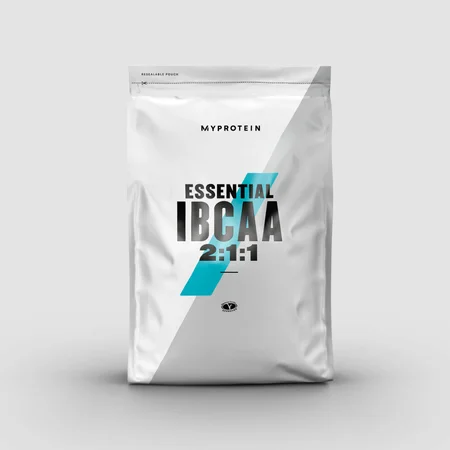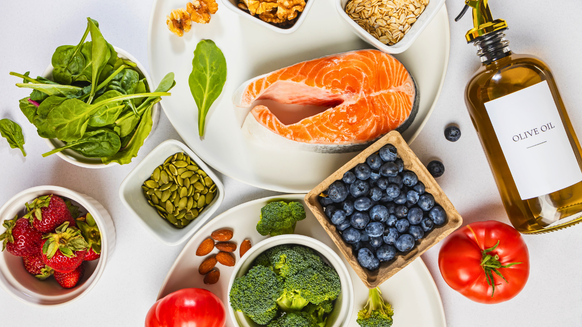
Nowadays it seems as if it is impossible to choose an effective meal plan or specific diet. A newbie looking to lose some weight or pile on some mass can be confused by all the contradictory information that lies within our reach. Terms like low carb, high carb, macros, ketogenic, complex carb, simple sugars and Glycemic index are flooding our favorite blogs and fitness sites and do nothing more than confuse the majority of people reading these articles. Before choosing a low or high carb or even a relatively “no” carb diet such as the famous ketogenic, one must understand what a carbohydrate is and what are its functions?
In very simplistic terms the carbohydrate is the body's first and most readily available source of energy. It is also the body's quickest source of energy. Within this quick energy source category, we find that not all carbohydrates are created equally. This is where all the information begins to contradict itself and is where the battle truly lies between the complex and simple carbohydrate.
What’s the difference?
The naming of these two different carbs is derived from the actual molecular structure of these two energy sources:
? “Simple” refers to one or two easily digestible molecules.
? “Complex” refers to the very complex and numerous molecular strings that are much harder for the body to break apart (digest). Complex carbs are much harder to digest because the body has a harder time breaking down the very numerous molecules, whereas table sugar, for example, is broken down in one very fast and easy step therefore causing an immediate insulin and energetic response.

Today’s trending diet is arguably the low carb diet, yet the biggest, most muscular and most idolized individuals on this planet consume anywhere between 300-1500 grams of carbs per day. One phenomena that isn’t worth fighting about is that we are all different and we all have different tolerances to carbohydrates.
The mass monsters of this world, such as the Mr. Olympia competitors, need huge amounts of calories and energy in order to complete the most simplistic tasks such as breathe, swallow and tie their own shoes. Their BMR (basal metabolic rate) are at heights in which the average gym goer will never be able to reach. These beasts need plenty of fuel in order to conquer their several hours of training per day in addition to their everyday tasks. Since they have to ingest huge amounts of food in order to grow, opting for the easiest digesting carbohydrates will put their stomach and digestive system at ease all while keeping them fueled and energized for the day.
Eating 1500 grams (around 6000 calories in carbs alone) of harder to digest, complex carbs, will without a doubt, pound at your digestive system and would call for some nasty stomach aches, bloating and constipation. The average gym enthusiast just trying to lose weight or put on some muscle on cannot base themselves off of a 300-pound genetically gifted freak.
Glycemic Index of Foods
The Glycemic index is a term that some of us may have heard already, but the majority of us have no clue what it really consists of. The Glycemic index is overused in weight loss articles and never really contains any explanation of what that chart really means or what it represents. The Glycemic index is a chart that ranks foods amongst their digestibility rates from slowest (1) to fastest (100 being glucose).
In more complicated terms, this chart ranks these foods by the speed in which our bodies release insulin and increase blood glucose levels. That being said individuals trying to lose weight should opt for the carbohydrates below 55 on the GI (Glycemic Index) so that blood sugar levels slowly increase rather than rapidly spike. This rapid spike in insulin is what leads to weight gain because for the most part, we do not have enough time to burn off those fast acting carbohydrates which encourages weight gain. For example, the chances of an individual burning off or truly utilizing a sweet potato versus a chocolate bar are much higher because the energy will be dispersed over a longer period of time and will increase the chances of burning off these calories and will avoid energy crashes.
The issue with carbohydrates and the Glycemic index is that this slow/fast digestion war between simple and complex carbs both fall under the category of “fastest source of energy”. So whether you’re looking at yams or a bagel they are both very fast and immediate sources of energy for the body despite one being slightly slower than the other. If a slower source of energy is what we are searching for then carbohydrates are not the solution.
What's the Deal with Fats?
One macronutrient that is often forgotten and is brought to light by the ketogenic community are fats. Fats tend to scare off the majority of the people trying to diet because of the name itself. Fats won’t make you fat (with reasonable consumption), on the contrary, they will promote weight loss. Fats are the bodies second source of energy and are a very slow releasing energy source.

If fitness enthusiasts are fighting over the slower, yet still fast digesting carbohydrates in order to burn fat yet fats are slower digesting molecules, than that raises the question and concern: are carbohydrates truly essential?
Fats will give you less of an immediate boost of energy, but this means there will be less of an energy crash preceding digestion. Another phenomenon worth mentioning is that digestion has a direct relation with satiety (fullness). If the food consumed is broken down easily and quickly then the individual will feel "full" for a short period of time. That being said, fats will keep you fueled for longer thus decreasing the chances of useless snacking and over eating. Fats are much more caloric then carbohydrates (9 calories per gram for fats and 4 calories per gram of carbohydrate) so it’s worth noting that consumption must be monitored and kept to a reasonable level.
A good example to compare the effectiveness of fats over carbohydrates is with breakfast. Most people will consume an “on the go” snack like a sugar filled granola bar and deem it "breakfast" on their way to work. This person will get a relatively immediate spike in glucose levels, but if the journey to work involves sitting down in a car, on the bus or on the train then the energy will not be utilized and will instead the unused energy will be stored as fat.
If this same person exchanged the granola bar for a proper breakfast, rich in fats such as peanut butter or eggs, this would mean a much slower release of energy. This will increase the chance of burning these calories because the energy window will be much larger. Walking up the stairs to the office or taking a quick walk during your break will burn a fraction of the total calories consumed thus piling on less weight. In theory, increasing this caloriie burning window will increase your chances of keeping off those unwanted pounds off.
Daily Fiber Intake
Before you deem carbohydrates as the enemy, there is one more critical piece of information that you must know. Perhaps the most important Micronutrient on the planet is dietary fiber. Dietary fiber helps with our digestive system (reduces constipation) and lowers your risk of heart disease, high cholesterol and diabetes. Soluble fiber also helps lower blood glucose levels meaning that consuming a diet rich in fats and fiber can be a very lethal combination. This micronutrient comes from the very macronutrient discussed throughout this entire article: carbohydrates.
Going Keto
The Ketogenic diet states that carbs form fiber are not accounted for in your total carbohydrate intake. This is one critical step to take on a carb restricted diet. If not the side effects may be severe because insufficient amounts of fiber may lead to certain health issues as previously stated.

Despite fiber being a very important micronutrient it is not essential to our bodies function. A nutrient is considered to be “essential” when the body isn’t capable of synthesizing that particular nutrient on its own, and therefore it must come from food. Among these essential nutrients lie the essential amino acids and the essential fatty acids. These nutrients serve to break down food, repair body tissue, aid muscle growth, form healthy cells, hair and skin, as well as hormonal production.
Amino acids are extracted from proteins and fatty acids and are absorbed by the digestion of fats. However there is no such thing as an essential carbohydrate. That being said there is no actual NEED for carbohydrates within the human body. If they aren’t essential it means that the body can live without them. The body was essentially not made to consume carbohydrates.
Take Home Message
Each and every single one of us individuals process this macronutrient differently meaning that the final decision is ultimately yours. That being said, if Fiber isn’t accounted for in your total carbohydrate intake, carbs truly aren’t essential to someone trying to build mass, lose weight or simply live a healthy lifestyle. Opting for fats instead of Carbs will lower your overall blood sugar levels, stop energy crashes, help with portion control and most importantly, keep you satiated for longer.
Eliminating or reducing carbohydrate intake will increase the consumption of the other two major macronutrients thus giving your body more of what it physiologically needs for a healthier, stronger and more efficient body.












